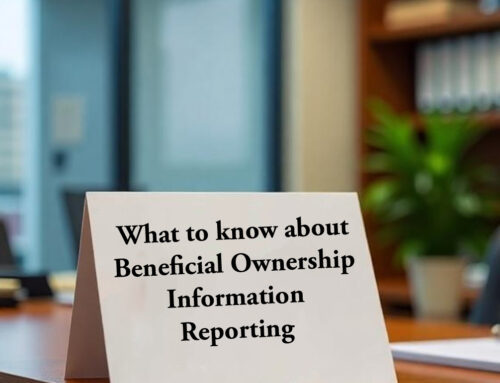To start your business you should know these things:
1) Alabama Tax Registration
Before starting your small business in Alabama, you must acquire the necessary identification numbers, licenses or permits for tax registration. Common forms of tax for most businesses will include sales and use tax, unemployment tax and income tax withholding. However, the list of possibilities does not end there. Depending on the nature of your business’s services, additional taxes may apply. The following are a few examples of those potential taxes:
- Lodgings tax
- Rental tax
- Pharmaceutical provider tax
- Nursing home privilege tax
- Mobile communication services tax
To begin registration, visit the Alabama Business Tax Online Registration System. For more information, you can turn to the homepage of the Alabama Department of Revenue, which includes a list of local taxpayer service centers, business workshop schedules and an online tax form search.
2) Business Licenses
The state of Alabama requires that businesses and occupations procure licenses or permits before beginning operations. The cost, type and number of permits that your business requires depends on the nature of the services you offer. For example, an automobile dealer will need to secure a different kind of license than a dismantler or rebuilder. The Business Licensing page by the Alabama Department of Revenue provides information on laws, updates on notices and answers to frequently asked questions regarding Alabama business licenses. Additional information and resources may appear on the Alabama.gov website.
3) Local Permits
The local government in your area, such as that of your city or county, may require specific permits and licenses. Each municipality may have its own unique regulations. Here are some of the most common licenses and permits you may need.
- Alarm Permit
- Building Permit
- Business License and/or Tax Permit
- Health Permit
- Occupational Permit
- Signage Permit
- Zoning Permit
4) Incorporation Filing
In Alabama, businesses that fall under the following categories must register with the Alabama Secretary of State Business Services:
- Corporations
- Non-profit Organizations
- Limited Liability Companies (LLC)
- Partnerships
Additional information and registration forms are available on the official site of the Alabama Secretary of State.
In Alabama, sole proprietors do not have to register with the Secretary of State to begin operations. However, sole proprietor businesses assume the personal name of the owner. If you want to avoid using your personal name, you must register for a trade name.
5) Doing Business As
By filing for a trade name or “Doing Business As,” you can give your Alabama business a name that is independent from your personal name or the registered name of your corporation or partnership. The Alabama Secretary of State’s Trademarks page offers forms for registering trademarks, service marks and trade names. You should also perform a trade name search to ensure that the name you intend to use is not already in use by another business. You can search through existing trade names on the previously mentioned website.
Employer Requirements
6) Withholding Taxes
Following the filing process for the 4th quarter of the year, Alabama employers are responsible for retaining records of employment taxes for the next four years. Information to be kept on file should include personal data of employees, information on tax deposits, your employer identification number and wage, annuity and pension payments. The IRS’s page on employment tax recordkeeping contains additional tips concerning the items in your records. Clear and accurate records will allow you track receipt sources, track the growth of your business, prepare tax returns and determine deductible expenses.
W-4 and W-2 Forms
Each employee must supply the employer with a completed Form W-4, a withholding exemption certificate. The employer must then send each Form W-4 to the IRS.
Alabama employers must also handle information pertaining to the withheld taxes and paid wages of each employee. On an annual basis, the employer should submit tax and wage information from the previous year to the federal government via Form W-2, the wage and tax statement. Copy A of this form should be sent to the Social Security Administration. Form W-2 is due by the last day of February, unless submitted electronically, in which case the due date is the end of March. In addition, each employee should receive a copy of the form by January 31st of the following year.
The following links can assist in filing your required forms:
- The Social Security Administration’s Employer W-2 Filing Instructions and Information page
- The Internal Revenue Service’s Employer Tax Guide
7) Employee Eligibility Verification (Form I-9)
New employees must complete Form I-9, which is proof of eligibility to work within the country. This form should be completed within three days of the start of the employment terms. The employer must then keep a form on file for each employee, whether they are US citizens or non-citizens.
The form can be found on the official site of the United States Citizenship and Immigration Services.
8) New Hire Reporting
In Alabama, employers must provide information concerning new or recalled employees to the Alabama Department of Industrial Relations within 20 days of employment. This information, which will include personal data such as names and social security numbers, can be submitted electronically. Visit the home page of the Alabama Department of Industrial Relations to access the new hire electronic filing system and a frequently asked questions page.
9) Insurance Requirements
If your Alabama-based business hires employees, you must pay unemployment compensation tax, which will provide some aid to unemployed individuals who are capable of working. The Employer Information page by the Alabama Department of Industrial Relations provides extensive information concerning unemployment tax.
Alabama businesses that require employees may also be responsible for paying workers’ compensation insurance. This insurance covers workers who were injured on the job or acquired a job-related illness. Visit the Insurance Coverage Information page by the Alabama Department of Industrial Relations for additional information. If your business requires four or less employees, working full-time or part-time, you may be exempt from this particular tax.
This information provided by Small Business Administration






